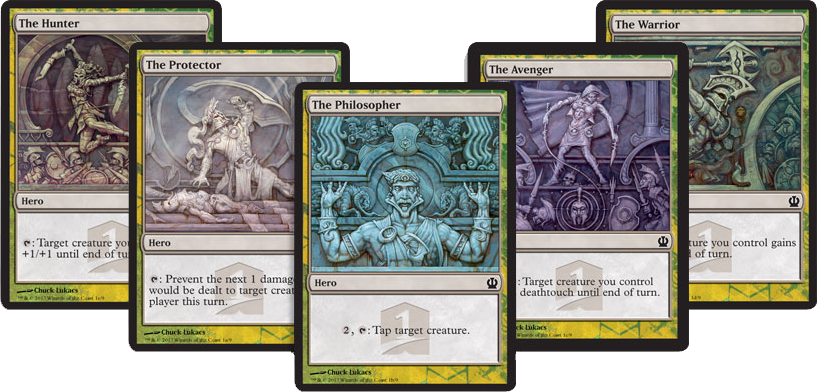Your Worst Critic
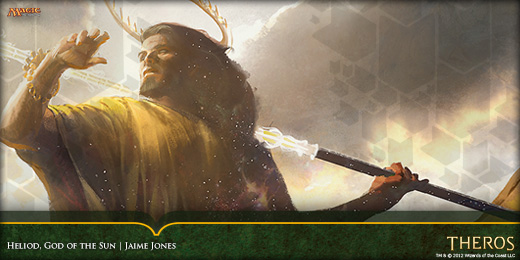
This past weekend I had the pleasure of attending the Magic: The Gathering Theros Prerelease in Roanoke, VA, hosted by the awesome Evan Erwin over at StarCityGames.com. A Prerelease is where a bunch of players gather together before the set is officially out, and play for the first time with the cards that have just been spoiled only a few days before. They’re organized at local stores, and offer players the very first chance on the planet to get some games in with the newest expansion set.
Theros wasn’t the final Magic set I would work on at Wizards of the Coast, but it was the last set for which I’d be heavily involved. I worked on both the initial and final design teams—placing me in close contact with the card file for the better part of two years—and saw plenty of cards along from their very first incarnation all the way through print. Aside from Lead Designer Mark Rosewater and Lead Developer Erik Lauer, I probably had the most to do with the state of the card file than anyone.
All of which is to say: I was and am very, very proud of the expansion we created. As a game designer, one of the most powerful moments you’re ever going to have involves the first moment your product is debuted to the world—the first chance people get to interact with the system you’ve devoted so, so, so many hours to refining. There’s nothing quite as magical as watching that moment unfold before your eyes.
There’s also nothing quite as nerve-wracking.
You see, you love your baby. You’ve watched it grow up. You’ve seen it evolve, take shape, twist and turn and bend and arc and form. You’ve molded it into what it has become. But everyone else—they just get to see what comes right out of the box.
And they tell you what they think about it.
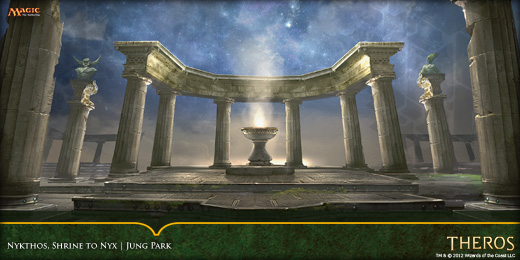
I wanted to highlight a few brief thoughts on how to digest, process, and internalize feedback from your players in order to make your game better. This can be one of the absolute hardest things to do as a game designer, but it’s hands-down one of the most vital. I know, because I have done this every imaginable kind of wrong over the last half-decade, and every single time I come to regret it—because I’m missing out on the opportunity to learn.
Harnessed correctly, player feedback can take your game to the next level. It can highlight the most fun elements of your engine, can alert you to previously unknown balance issues, can reveal expectations and priorities that would never have occurred to you in a million years. But it can also sting a little. And that’s where we get ourselves gotten every single time.
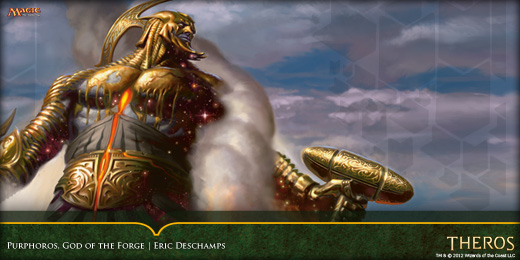
Listen First. Argue Later.
Hands-down the most important thing to understand about every single player that tells you anything about your game is that they are having a genuine experience that is real. The way human beings work, people are far more likely to speak up if they’re experiencing something negative than if they’re experiencing something positive. I’m writing this blog from a tea shop right now, and I’m not walking around saying to people, “The calming music and well-designed environment in this shop is helping cool my existential dread right now, and feels really exquisite!”
Our reaction, though is to try and explain immediately why we have some answer to a negative sentiment someone is expressing about our game. “There aren’t enough enablers,” someone said to me about a mechanics in Theros. What I want to do is walk through the card file and point out every single enabler, maybe make some argument about how it’s the player fault for not seeing this, the player who is undervaluing cards and making poor decisions, thank you very much. But one has to shut to shut one’s smugly-inclined mouth in this instance, because the opportunity to learn something that’s too valuable to pass up.
The key is that while the details may be false, the experience is always true. That is, the player is definitely feeling as though what he or she is saying is the case. Suppose, though, that there are enough “enablers,” or whatever the criticism may be. We have to ask ourselves, then, what’s causing the problem? Maybe the solution is there, but it’s too veiled and the player cannot see it. Maybe the overall experience you’re delivering isn’t fun, and the player perceives that, but it manifests in the form of the player’s specific criticism. Maybe the particular rolls of the dice led to a string of highly-unlikely circumstances that won’t occur again in that player’s lifetime. And maybe, just maybe, none of this is actually something you need to act on at all.
But maybe it is. And if you shut down before you have the chance to listen, you’re never going to know for sure.
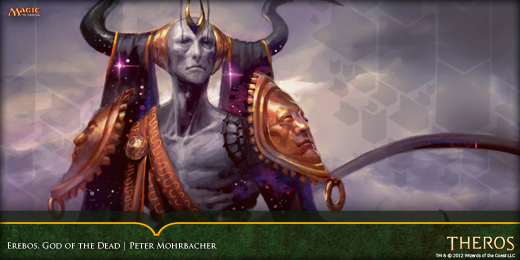
It Doesn’t Matter If You’re Right or Wrong
During one of my games I was able to defeat a player with a powerful enchantment. The player was upset, and said to me that it was a shame that green (the color of his deck) had no way to remove enchantments in the set.
It turns out that this isn’t so, and I wanted to point this out to him. However, I had to stop for a second: what was I proving here? If I knew this was true, the fact that I would sit there in my chair and contradict him didn’t render the statement any more or less true—it just allowed me to feel authoritative and dominant. Instead, what I was able to learn was a valuable piece of data regarding how the game looked if something out of the ordinary happened.
Yes, I was ‘right’ that an appropriate piece of enchantment removal “should” have been there in his pool, statistically speaking. But by refusing to point that out, I was able to appreciate exactly how severe of a problem it was that what “should” have happened didn’t happen. It lets us know the consequences of what occurs when our players fall to one extreme of the spectrum of variance!
Different People are Different
Every single player in the tournament got to choose one of five very powerful rare cards to play in his or her deck as a reward for “choosing a path”: of declaring a certain allegiance to one of Magic’s five colors. After the very first match, a player walked up to me and expressed disbelief at having just lost a game to the red rare. “It’s so much better than every other color,” he said.
I looked at the card. At first glance, he was right: the card cost less to cast, was wildly oversized relative to the average, and on top of all that possessed a very powerful ability that made it difficult to come back once it was activated. I thought to myself: how did we miss something so obvious?
Not ten minutes after that, though, a player was talking to her friend who had also just lost. “It’s just not balanced,” she was telling him. He had out his copy of the red rare, but his opponent had managed to activate the card’s blue counterpart, a giant kraken from the depths of the sea who, when activated, neutralizes every creature on the board.
Later of course, someone started talking about how the blue rare was awful compared to the white version, which hit the table earlier and couldn’t be blocked. And on and on and on.
None of us are any good at identifying how “objective” any of our experiences really are, because we come at the entire universe from one very, very, very particular lens: our own. Of course the hundreds of thousands of possible outcomes are less salient to us than the one we have just experienced, because after all, that’s the one that happened to us! Too often I see new designers scrambling to change around entire mechanics due to a player having a very negative experience that arose in a playtest—but it’s entirely possible a different player could have had a different reaction to the same result. That’s why it’s critical to have a broad array of different players involved in playtests, and to iterate numerous times before taking major actions that ripple across your entire game. Otherwise, you’re assuming one player’s reaction is universal, when usually it’s anything but.

